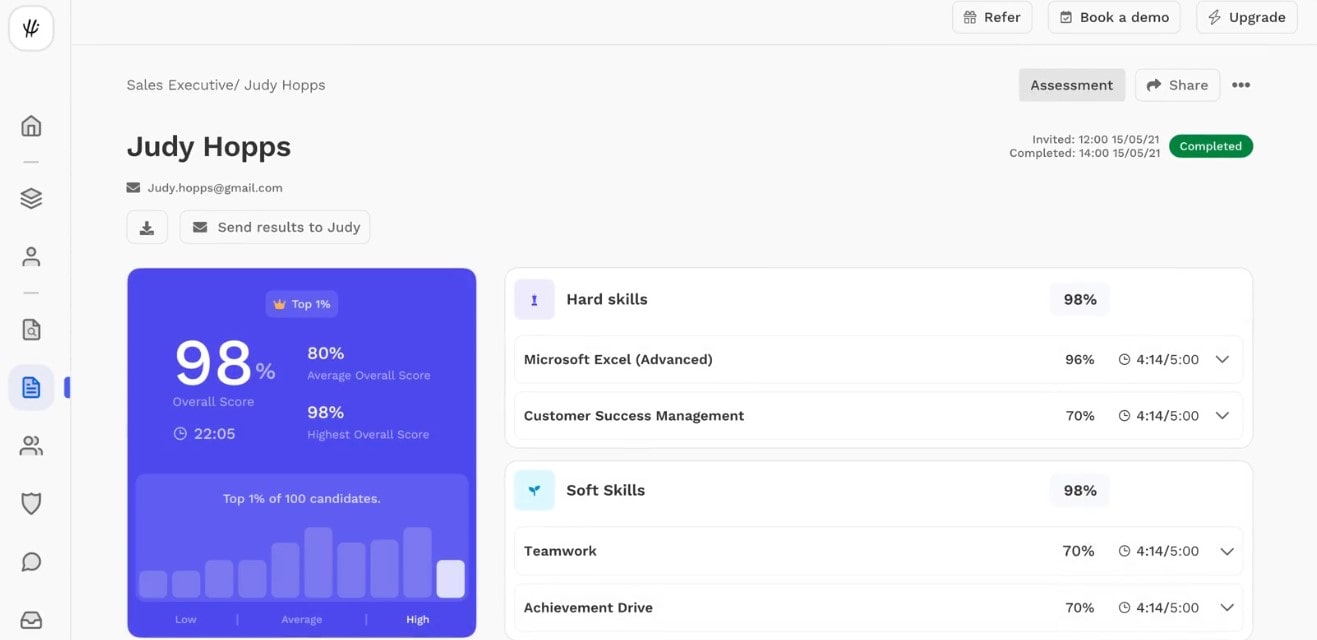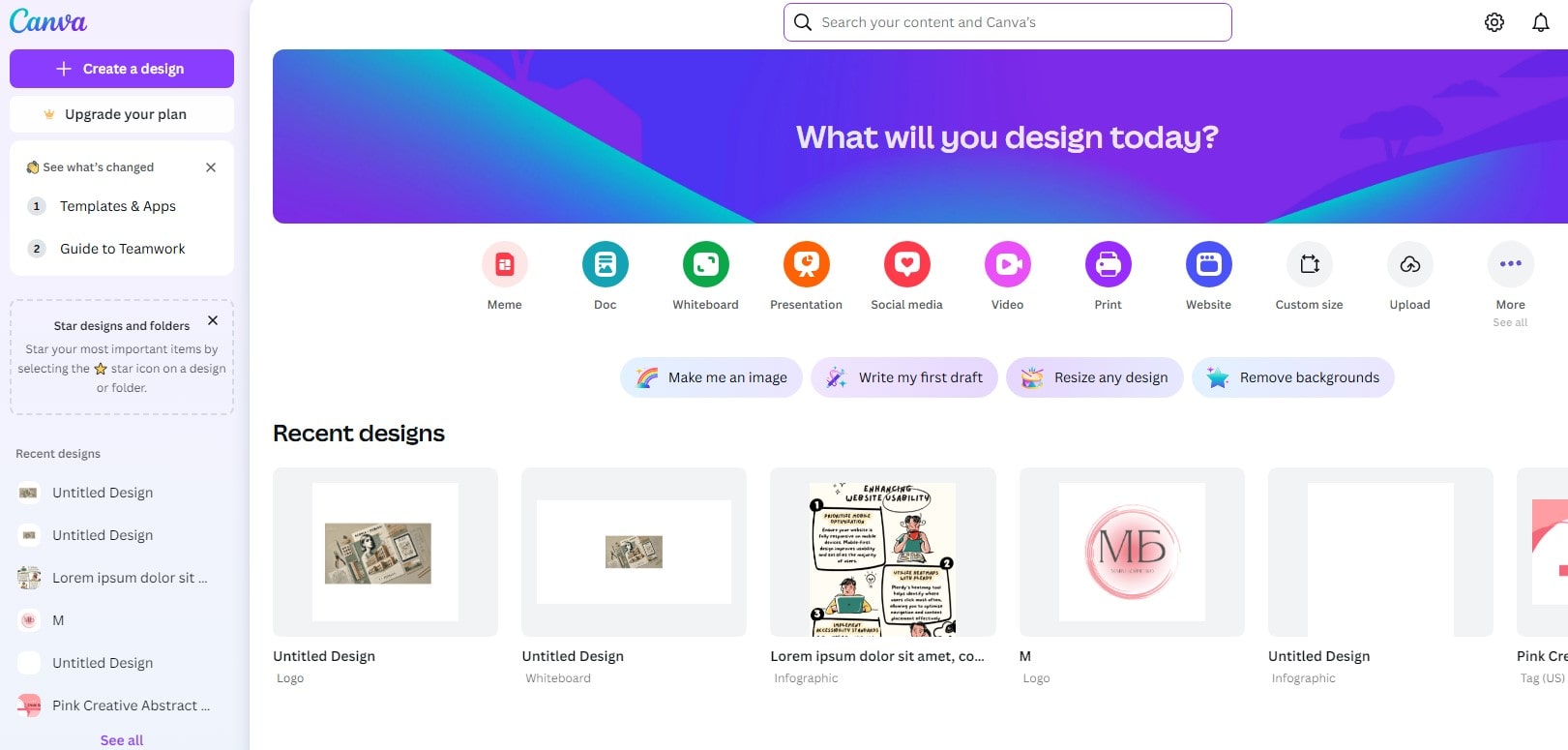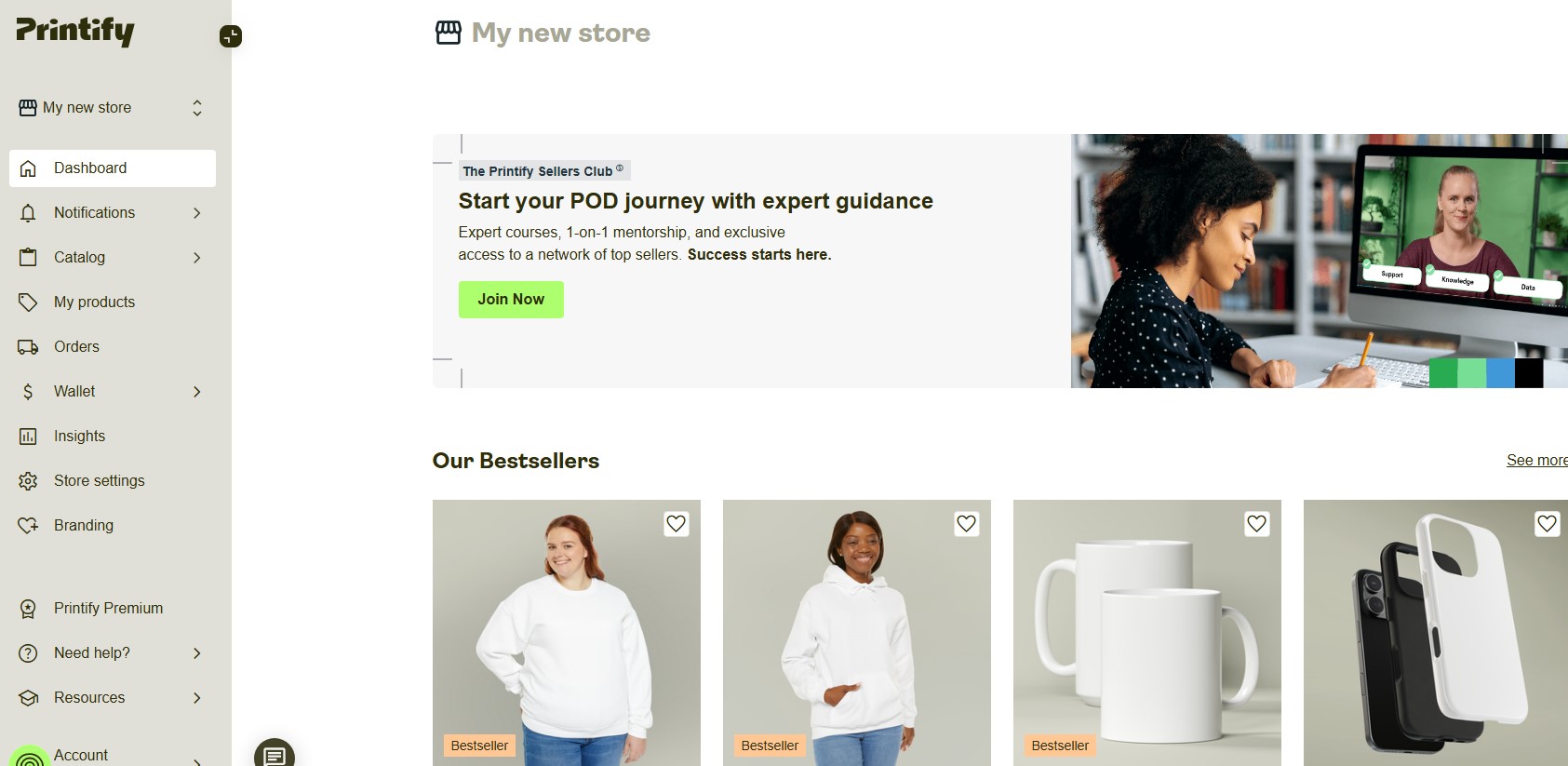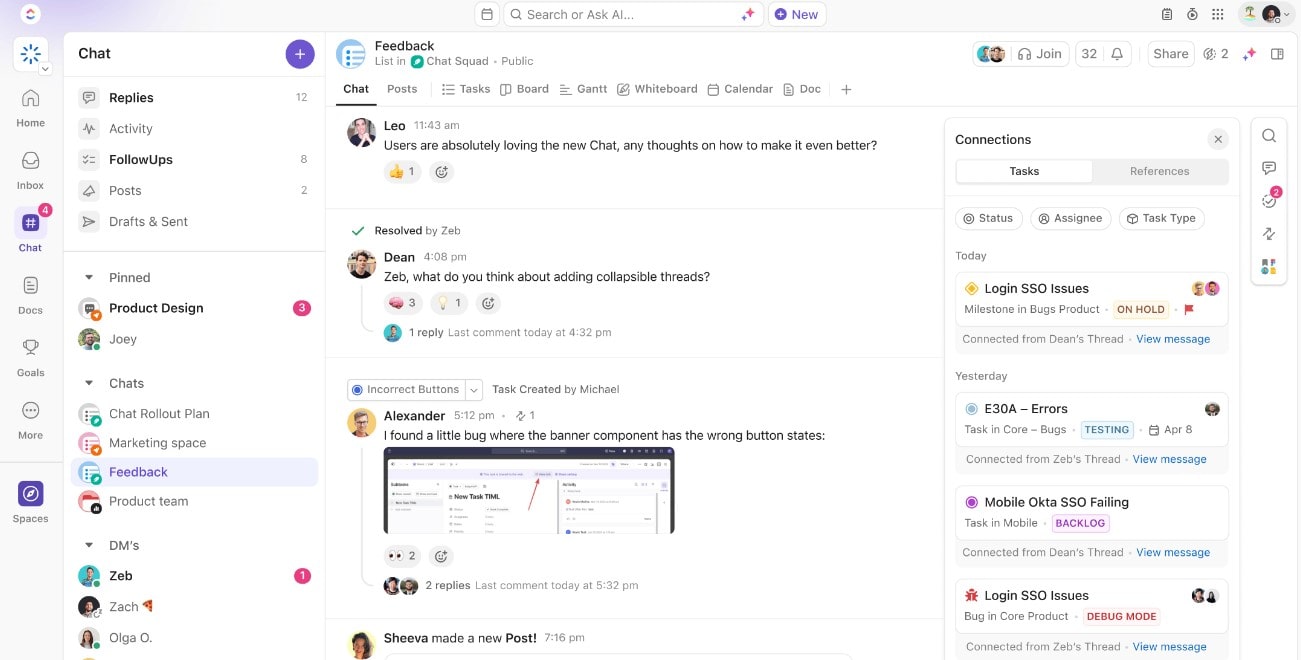In today’s crazy tech world, SaaS startups are everywhere, shaking things up. Why? They’re solving problems faster than you can say “cloud-based solution.” From AI-powered language learning tools like Univerbal to super-smart design platforms like Vizcom, these companies are making waves. What’s the secret sauce? Innovation, speed, and knowing exactly what businesses need. Startups like these are not just following trends—they’re creating them. And with SaaS being such a flexible and scalable model, it’s no wonder they’re growing like wildfire. Buckle up! You’re about to dive into the top 40 SaaS startups redefining 2025.
Key SaaS Industry Trends
AI-Powered Innovations
AI is revolutionizing the SaaS world, making startups smarter and faster. Take Univerbal, a company redefining language learning with AI-driven conversations that adapt to your skill level. No more boring, robotic chat—just smooth, real-time interactions in 21 languages.
Another rising star is Vocode, a startup changing the game in customer support. Their voice AI handles phone calls like a pro, understanding speech and generating responses instantly. It’s like having a customer service team that never sleeps.
AI’s impact on SaaS companies is massive. It powers features like predictive analytics, dynamic user interactions, and automated workflows. Whether it’s simplifying tedious tasks or creating smarter tools, AI transforms startups into industry leaders. And trust me, this wave of innovation? It’s just getting started.
Low-Code and No-Code Platforms
Building an app used to mean hiring pricey developers. Now, low-code and no-code SaaS platforms like SettleMint and Orq.ai make it a breeze. SettleMint simplifies blockchain for businesses—no coding, just ready-to-use templates for smart contracts or supply chain tracking.
On the AI front, Orq.ai empowers companies to experiment with large language models without needing a tech guru. Test, tweak, deploy—all from one intuitive platform.
These tools are lifesavers for startups and businesses looking to cut costs while speeding up development. Imagine focusing on your app’s big idea instead of debugging code. Low-code platforms turn complex tech into simple steps, boosting creativity and efficiency.
Sustainability and Energy Efficiency
Sustainability is no longer optional for SaaS companies—it’s essential. Look at Elyos Energy, a startup helping businesses reduce energy use during peak hours. Their platform lowers electricity bills by 15% and shrinks carbon footprints by 7%.
It’s not just eco-friendly; it’s smart economics. Governments pushing for net-zero emissions mean tools like Elyos are becoming critical. SaaS startups focusing on sustainability attract conscious investors and clients alike. Saving money while saving the planet? That’s the SaaS model everyone’s rooting for.
Selection Criteria for Top Startups
Funding and Investments
Money talks, especially in the SaaS world. Big funding rounds often mean a company is on fire, catching the attention of venture capitalists and angel investors. Take HiPeople, which nailed a $3 million seed round. Or Pivot, scoring $21.6 million in Series A funding. These startups are not just sitting on cash—they’re using it to scale, innovate, and dominate their niches. Funding ensures they have the resources to refine their products, expand their teams, and enter new markets. Without solid financial backing, even the brightest SaaS idea risks fizzling out before hitting the big leagues.
Innovation and Market Impact
What makes a SaaS startup stand out? Innovation that solves real problems. Take Vizcom—their AI-powered sketch-to-render tool changes the game for designers, cutting hours of manual work into seconds. That’s impact! Startups that bring unique features not only grab users’ attention but also shape market trends. Think of it this way: a SaaS company that dares to reinvent workflows and improve user experience becomes the benchmark. Customers love it, competitors chase it, and the startup gains that sweet first-mover advantage. In the SaaS game, innovation isn’t optional—it’s survival.
Customer Growth and Scalability
Rapid customer growth shows a SaaS company is doing something right. Just look at Univerbal, which hit 50,000 users in two days post-launch. Or NitroPack, trusted by over 219,000 websites to boost speed. These startups know how to scale their operations without breaking a sweat. It’s not just about gaining users but also keeping them happy and engaged. Scalable SaaS platforms ensure smooth onboarding and consistent performance, even as user numbers skyrocket. When a startup proves it can grow fast while maintaining quality, it’s clear they’ve cracked the scalability code. That’s what makes investors smile.
Top SaaS Startups by Category
AI and Machine Learning Startups

Artificial Intelligence isn’t just buzz anymore—it’s the backbone of many game-changing SaaS companies. Let’s dive into 8 startups that are flipping the script with AI-powered tools, automation, and conversational AI.
1. Vocode: Mastering Conversational AI
Ever thought bots could sound human? That’s Vocode’s jam. This startup crafts conversational AI tools that mimic real dialogue, making customer support seamless. Imagine never knowing if you’re chatting with a bot or a rep—it’s that smooth. Businesses love Vocode for its ability to reduce response time and boost user satisfaction. Bonus? Companies using Vocode report a 40% drop in support costs.
2. Univerbal: Breaking Language Barriers
Meet Univerbal, the startup making communication effortless. Their AI-powered translator handles everything—video calls, emails, even social media posts. For SaaS companies targeting global markets, Univerbal is gold. It offers real-time, flawless translations, helping businesses expand without hiring pricey language experts. It’s SaaS globalization on steroids.
3. HiPeople: Smarter Hiring Decisions
HiPeople uses machine learning to revolutionize recruitment. Its AI tools analyze resumes, conduct assessments, and predict candidate success rates. Say goodbye to guesswork and hello to a streamlined hiring process. For startups scaling fast, HiPeople is the ultimate timesaver. Companies report 30% faster hiring and higher-quality recruits.
4. NitroPack: Optimizing Website Speed
NitroPack leverages AI to keep websites lightning-fast. Slow sites lose customers, right? NitroPack fixes that by optimizing every element—images, scripts, and server response. Over 219,000 websites trust NitroPack, proving speed is a SaaS company’s secret weapon for keeping users happy and conversions high.
5. Gong.io: Sales Supercharged
Gong.io records sales calls, analyzes them with AI, and delivers insights on what works. Need to close more deals? Gong.io gives your sales team the playbook. Startups using Gong.io report 30% higher close rates. Its AI listens, learns, and helps you pitch better every time.
6. Scribe: Simplifying Documentation
Scribe automates the creation of process guides. It records workflows and turns them into step-by-step instructions. For SaaS startups building internal knowledge bases, Scribe is a lifesaver. Plus, it’s not just practical; it saves hours of manual work every week.
7. Replika: AI for Emotional Support
Replika is an AI-powered chatbot offering mental health support. It’s a friend, therapist, and coach in one. SaaS companies exploring the wellness market can’t ignore this trend. With over 10 million users, Replika shows how AI can be both personal and impactful.
8. Jasper: Creative Writing, Automated
Need a blog post, ad copy, or email in minutes? Jasper’s AI generates creative content with a human touch. SaaS companies rely on it for marketing that doesn’t miss deadlines. Jasper’s tools save time, spark ideas, and help startups stay consistent with content.
These AI-powered startups are leading the SaaS revolution. From smarter hiring to faster websites and personalized user experiences, they’re proving that innovation isn’t optional—it’s essential. Which one will transform your company next?
HR and Recruitment Tools

Finding the right person for your company can feel like searching for a needle in a haystack. Luckily, these HR and recruitment startups turn chaos into clarity. Let’s explore 8 game-changers helping SaaS companies build dream teams.
1. BambooHR: Simplifying HR Management
BambooHR makes managing people feel less like juggling flaming torches. It offers tools for tracking employee data, benefits, and even performance reviews. This startup is a lifesaver for SaaS companies scaling fast. Bonus? You get beautiful reports that make HR meetings less boring.
2. HiPeople: Next-Level Candidate Screening
HiPeople skips the small talk and gets straight to the point. It automates reference checks, providing detailed insights on potential hires. SaaS startups love it because it saves time and catches red flags early. Companies using HiPeople cut hiring mistakes by 25%.
3. Personio: HR Made Simple
Personio is an all-in-one tool for payroll, recruiting, and onboarding. Think of it as your HR department’s Swiss Army knife. For startups juggling multiple tasks, Personio is a must-have. Plus, it’s user-friendly, so you don’t need a PhD to figure it out.
4. Workable: Fast Hiring for Growing Startups
Workable helps SaaS companies speed up hiring without sacrificing quality. Its AI-powered recommendations show you the best-fit candidates instantly. Startups report filling roles 50% faster. If time is money, Workable’s a goldmine.
5. Greenhouse: Data-Driven Recruitment
Greenhouse takes a scientific approach to hiring. It provides detailed analytics on each candidate, so your decisions are based on data, not gut feeling. For SaaS startups aiming to stay ahead, this tool is like having a crystal ball.
6. Lever: A Collaborative Hiring Platform
Lever lets your whole team get involved in recruitment. You can track candidates, share feedback, and streamline the process. Startups using Lever see improved team cohesion and better hiring outcomes. It’s teamwork, but for hiring.
7. JazzHR: Customized Recruitment Solutions
JazzHR caters to small and midsize startups. Its customizable workflows fit every company’s unique needs. Whether you’re hiring your first employee or your fiftieth, JazzHR grows with you. And yes, it’s budget-friendly, making it a top pick for SaaS companies on tight budgets.
8. ClearCompany: Total Talent Management
ClearCompany focuses on aligning hiring goals with business objectives. It doesn’t just find talent; it ensures they fit your company’s vision. For SaaS startups serious about culture, this is a game-changer.
Recruitment can make or break a startup. The right team doesn’t just boost productivity—it sets your company apart in a crowded SaaS market. With tools like BambooHR or HiPeople, you’re not just hiring; you’re building a legacy. Ready to upgrade your hiring game? These startups have your back.
Creative and Design Tools

Design work used to feel overwhelming for many SaaS startups. Now? It’s a whole new ballgame. Let’s dive into 8 awesome startups that make creativity easy, fast, and even fun.
1. Vizcom: Turning Sketches into Reality
Imagine sketching a rough idea and getting a polished 3D render in seconds. That’s Vizcom for you. This startup’s AI-powered tools save hours for SaaS companies working on product design. No more guesswork—just fast, accurate results that impress clients.
2. Canva: Design for Everyone
Canva is a household name for a reason. It gives startups everything they need to create stunning visuals—social media posts, pitch decks, or even branding materials. And the best part? Zero design skills required. Over 85% of small companies now use Canva to boost their marketing game.
3. Bubble.io: No-Code Magic for Web Design
Bubble.io empowers startups to build dynamic websites without touching a single line of code. From e-commerce to SaaS platforms, companies can create everything in-house. It’s a game-changer for teams without a full-time developer.
4. Figma: Collaborative Design Made Simple
Figma is all about teamwork. Startups can collaborate on designs in real time, making feedback loops faster than ever. SaaS companies praise Figma for cutting project timelines by 30%. Plus, it’s cloud-based, so no need to email massive files around.
5. Sketch: Iconic for Interface Design
When it comes to UI/UX design, Sketch has been a favorite for years. Its intuitive tools help SaaS companies create user-friendly apps and websites. Startups aiming for sleek interfaces turn to Sketch for its flexibility and simplicity.
6. Crello: Social Media’s Best Friend
Crello is perfect for creating eye-catching social content. Startups love its vast template library and quick editing options. You don’t need a graphic designer to create engaging ads or Instagram stories—just Crello and a little imagination.
7. Zyro: Websites in Minutes
Zyro helps startups launch websites super fast. Its drag-and-drop builder and pre-made templates make the process easy, even for beginners. SaaS startups looking for a quick online presence appreciate how user-friendly and cost-effective it is.
8. Snappa: Quick Visuals on the Go
Snappa is for startups that need fast, professional-looking visuals. Whether it’s a blog banner or a LinkedIn ad, this tool delivers high-quality designs in minutes. It’s especially popular among SaaS companies juggling multiple marketing campaigns.
In today’s fast-moving SaaS world, good design isn’t optional—it’s essential. With tools like Figma or Vizcom, startups save time, reduce costs, and create content that captures attention. Want your company to stand out? These startups can help you shine without breaking the bank.
E-commerce and Logistics SaaS

E-commerce is booming, and so is the need for efficient logistics. Startups in this space are solving problems that used to give online sellers nightmares. From streamlining supply chains to reducing delivery costs, these companies are changing the game. Let’s check out eight SaaS startups making waves in e-commerce and logistics.
1. Printify: Custom Products, Hassle-Free
Printify lets e-commerce sellers offer custom products without worrying about inventory. This startup connects sellers with print-on-demand suppliers worldwide. No upfront costs, no warehouses—just easy profits. Many small businesses credit Printify for saving them up to 30% on operational costs.
2. Shiprocket: Smarter Shipping
If shipping logistics sound stressful, Shiprocket will be your lifesaver. This SaaS company helps startups optimize delivery routes, cut shipping costs, and offer real-time tracking. Their tools are super handy, especially for e-commerce stores juggling hundreds of daily orders.
3. Order.co: Simplifying Bulk Purchases
Order.co is perfect for startups that buy in bulk. It automates reorders and keeps inventory under control. This company claims to reduce purchasing time by 50%, which is a huge win for growing SaaS startups.
4. Easyship: Global Shipping Simplified
Expanding internationally? Easyship has your back. This startup helps e-commerce businesses handle customs, taxes, and international shipping fees. They’ve made global delivery easier for over 100,000 companies.
5. Flowspace: Warehouse Solutions for Startups
Flowspace offers on-demand warehousing for startups. If you’re scaling your e-commerce store and need extra storage, they provide flexible, cost-effective options. No long-term contracts, just pay for what you use.
6. ShippyPro: All-in-One Shipping Solution
ShippyPro helps e-commerce startups manage all their shipping needs in one place. You can print labels, track packages, and even handle returns. It’s a favorite for companies managing high volumes of daily orders.
7. Deliverr: Lightning-Fast Fulfillment
Speed matters, especially in e-commerce. Deliverr partners with platforms like Shopify and Walmart to offer two-day shipping options. Startups using Deliverr see a noticeable boost in customer satisfaction.
8. Inventory Planner: Smarter Stock Management
Inventory Planner helps e-commerce startups avoid stockouts and overstocking. This SaaS tool uses data to predict demand, helping companies save money and keep customers happy.
Without smart logistics, even the best e-commerce idea can flop. These SaaS companies make sure startups stay efficient, cut costs, and deliver faster. If you want your e-commerce company to thrive, you’ll need tools that make logistics a breeze.
Productivity and Collaboration Platforms

In today’s fast-paced world, productivity is everything. Startups and SaaS companies need tools to keep teams connected, tasks on track, and ideas flowing. Productivity platforms are the secret weapon to staying ahead. Let’s dive into eight startups that make collaboration a breeze.
1. ClickUp: The All-in-One Powerhouse
ClickUp isn’t just a task manager; it’s a complete workspace. From assigning tasks to tracking deadlines, it’s a dream for busy startups. With tools for time tracking, file sharing, and goal setting, this SaaS platform saves you hours—maybe even days—every week.
2. Miro: Visual Collaboration Redefined
Whiteboards? Forget it. Miro turns your brainstorms digital. Whether you’re mapping a project or sketching UX designs, this platform keeps teams on the same page, even if they’re oceans apart. Fun fact: over 95% of Fortune 100 companies swear by Miro.
3. monday.com: Teamwork Made Simple
Ever feel lost in a sea of emails? monday.com organizes projects visually, so everyone knows what’s happening. With customizable workflows, this SaaS startup turns chaos into clarity. No wonder 152,000 companies use it daily.
4. Slack: Beyond Just Messaging
Sure, Slack is a chat tool, but it’s more than just pings and GIFs. It’s where real work happens. Integrated with countless SaaS platforms, Slack keeps your startup’s communication seamless, cutting down on those endless Zoom meetings.
5. Asana: Perfect for Task Freaks
Asana is for startups that live by checklists. Its easy-to-use interface helps teams prioritize tasks, set milestones, and crush deadlines. Plus, its mobile app? A lifesaver for anyone juggling a million things on the go.
6. Notion: Organize Your Entire Life
Notion combines notes, databases, and tasks in one sleek space. Startups love it for its flexibility—whether you’re writing meeting notes or building a company wiki, Notion has your back. Bonus: its dark mode is perfect for late-night brainstorming.
7. Trello: Kanban Simplicity
Need a simple way to organize projects? Trello’s got you covered. This platform uses boards, lists, and cards to keep everything neat and tidy. Even non-tech teams find it a piece of cake to use.
8. Basecamp: Old-School Reliability
Basecamp might be one of the older platforms, but it’s still a favorite. From to-do lists to team chat, it covers all the basics. Startups love its straightforward approach—no frills, just solid collaboration tools.
Every startup dreams of building a productive and happy team. With platforms like these, collaboration doesn’t have to be stressful. Whether you’re a two-person SaaS company or a growing team of 100, the right tool can save your time, energy, and sanity.
Future Outlook for SaaS Startups
Emerging Technologies in SaaS
The future of SaaS startups shines with emerging technologies. Blockchain, for instance, is changing data security forever. Imagine managing contracts or payments without worrying about fraud! Startups like SettleMint are making blockchain simple, even for non-tech users.
But it doesn’t stop there. Augmented Reality (AR) and Virtual Reality (VR) are stepping into SaaS markets too. AR enhances user experiences in retail, while VR is a game-changer for training and simulations. Predictive analytics is also booming. It’s like giving your company a crystal ball to forecast trends and optimize strategies. In 2024, these innovations will be the cornerstone for new SaaS solutions.
Niche SaaS Markets
SaaS startups are finding success by focusing on niche markets. Gone are the days when one-size-fits-all solutions worked. Now, companies crave specialized tools tailored to their unique problems. Take Tegon, a SaaS product designed specifically for issue tracking in healthcare. It solves problems that generic tools just can’t handle.
Startups in education, agriculture, and even pet care are rising fast. They focus on specific industries, offering features others miss. By catering to smaller audiences, these companies build loyal user bases and avoid direct competition with giants. In 2025, we’ll see more SaaS startups owning their niches and thriving.
The SaaS future? Innovative and tailored—just how users want it.
Conclusion
SaaS startups are not just companies; they’re shaping the future of tech. From streamlining workflows to revolutionizing industries, their impact is massive. Tools from SettleMint to ClickUp make life easier and businesses smarter. Imagine a world where automation, blockchain, and AI handle the boring stuff while you focus on big ideas. Sounds good, right?
Keep an eye on these innovative startups—they’re leading the next wave of technology. Who knows? The next big SaaS breakthrough could change everything, and you don’t want to miss it! Future’s knocking; time to answer.
